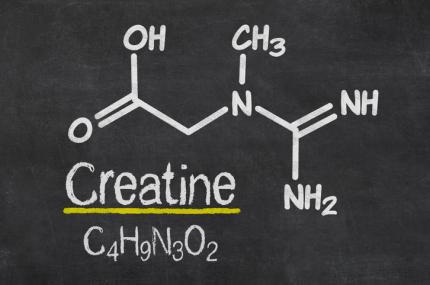Uncensored

Scott Welch has devoted his career studying performance enhancement and weight loss through dietary intervention. He received a bachelor of applied science degree in Nutrition from Ryerson University and later completed a post-graduate certificate in advertising. He’s had countless interactions with leading scientists, doctors, and hundreds of trainers from around the world, giving him a unique perspective that others lack. Welch founded MUSCLE INSIDER in 2009.

Can Creatine Be Used Pre-Contest?
Can creatine be used pre-contest?
Certain people and companies have convinced much of the weight-training public that creatine somehow makes you look “soft.” But creatine is stored in muscle, along with the associated water, so how could it affect how the skin drapes over the muscles? My answer is that it can’t! The theory is that because creatine makes you “retain water,” somehow this water finds its way into the area between the skin and the muscle, thus blurring muscle definition. Some “kings of creatine” even state that their magic creatine formulas don’t cause bloating! Well, I finally got irritated enough to call in Mark Gilbert to put this issue to rest. And he hasn't just asked a few guys who have done a couple of studies on creatine or won a pro card – he talked to Dr. Paul Greenhaff and Dr. Mark Tarnopolsky. These guys have conducted well over 100 published scientific studies on creatine and have both been studying this molecule for 20 years! These guys have actually discovered and patented cutting-edge ways to use creatine for building muscle and treating diseases! They perform biopsies on research subjects (which is the process of removing muscle tissue from the body) and use scientific techniques to look at that muscle and find out exactly where creatine goes and what it does when it enters the body.
Here’s Dr Greenhaff’s response: “You are correct. The vast majority of creatine is stored in skeletal muscle, and it’s cleared from the blood relatively quickly following ingestion. Based upon this, it’s difficult to understand how creatine would increase subcutaneous water content.” (Note: “subcutaneous” basically means under the skin.)
Dr Tarnopolsky’s response is slightly more technical. He first notes the balance between interstitial fluid volume and its equilibrium with plasma and points out that if creatine caused bloating in this way, users would experience severe bloating for six to eight hours after ingestion. This doesn't occur.
He then points out that the first four to seven days of creatine use may cause water retention in the muscle, which could make the muscle look “puffy” (the effect we want when we use creatine). This actually causes a diuretic (water-shedding) effect at about Day 10 of creatine use! He then points out that virtually no creatine can be stored in fat cells.
So there you have it from two of the most knowledgeable and experienced creatine researchers in the world. So take creatine right up to contest time… unless you want to lose muscle, lose strength, and (according to Dr. Tarnopolsky) possibly lose the diuretic effect and actually look more puffy!

